Wedding at Vorontsov Palace (Alupka): Here apart from being a beautiful and historical palace, when I was there, perhaps about 1 or 2 hours, I saw about 10 weddings. At first I thought that maybe it's only because of its beauty that beautiful couples are coming here to take some wedding photos. But after reading the history and some books, I realized no no no, there is a history behind the curtain.
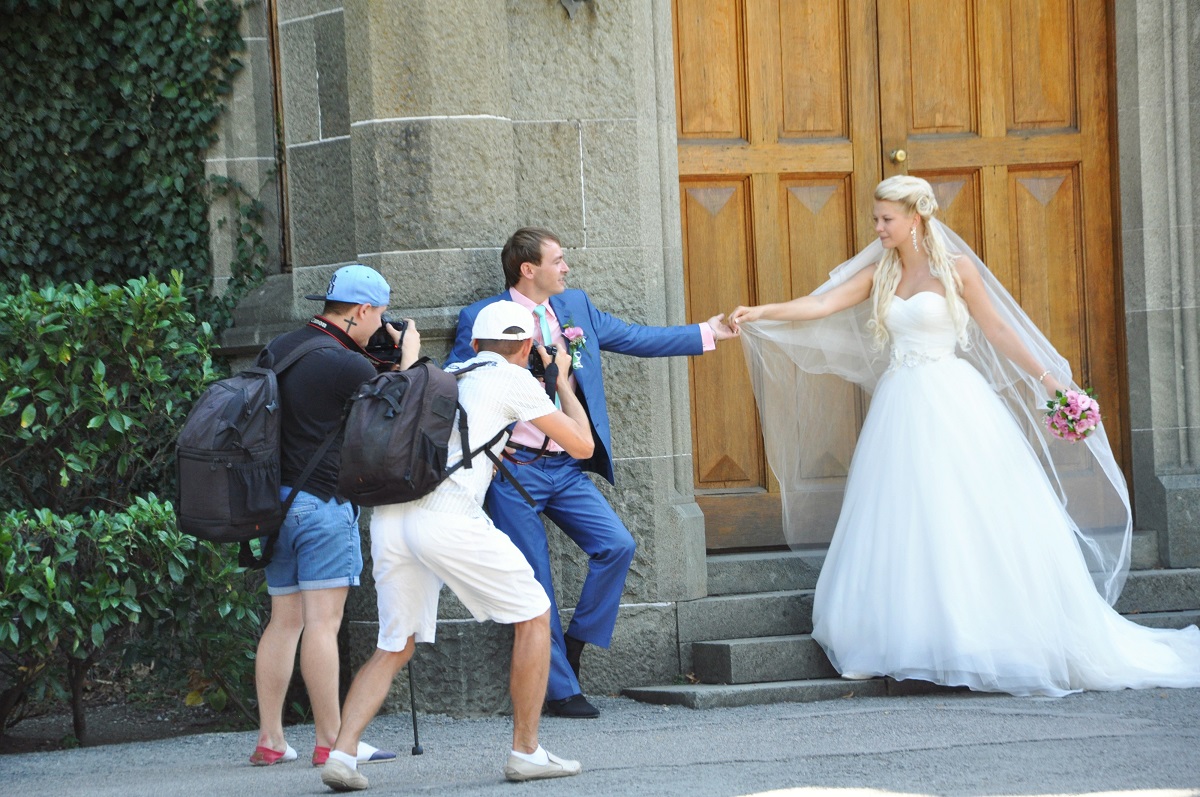
Vorontsov family was one of the richest in the Tsar times. They built many of the most beautiful palaces in Crimea. This palace was built for the short stays on the way to the Crimean Riviera.
later (1845) Prince Mikhail Vorontsov (30 May 1782 – 18 November 1856), Viceroy of New Russia, builder of the palace. He was renowned for his success in the Napoleonic wars. As the Viceroy of the Caucasus from 1844 to 1853, he supervised the conduct of the Caucasian War. Having completed the palace, Vorotsov, now suffering progressive blindness, spent little time there. His commitments to the expanding Russian Empire took him to Tiflis; there, he waged wars on the rebellious local tribes. The now elderly Vorontsov, a confirmed anglophile, was particularly distressed by the outbreak of the Crimean War, which, in England, was heavily promoted by his English nephew, Sidney Herbert. Embarrassed and distressed, he retired from public life to the privacy of Odessa. Vorontsov died in 1856, having lived just long enough to see the signing of the Peace of Paris. Vorontsov's tomb in the Odessa Cathedral was ruined by the Soviets, but his remains survived the Soviet era and were returned to the newly rebuilt cathedral in 2005. later Princess Yelizaveta Vorontsova (19 September 1792 – 27 April 1880), a daughter of Count Franciszek Ksawery Branicki by Aleksandra von Engelhardt, one of the nieces and heiresses of Prince Potemkin, the founder of New Russia (who was childless). She was one of the many Polish noble women who married the Russian aristocrats during the brief period of the "Polish enchantment", when Alexander I publicly conducted an affair with Marie Czetwertyńska and his heir Konstantin was in love with her sister Joanna Wyszkowska. When exiled to the Black Sea coast after The Gabrieliad affair, Alexander Pushkin wooed Elise Vorontsova in Odessa and addressed several poems to her. Apparently resenting his advances, the countess complained to her husband, who had his young rival exiled to a northern village. After her husband's death, Yelizaveta rarely visited the Alupka Palace, preferring to live in Odessa.
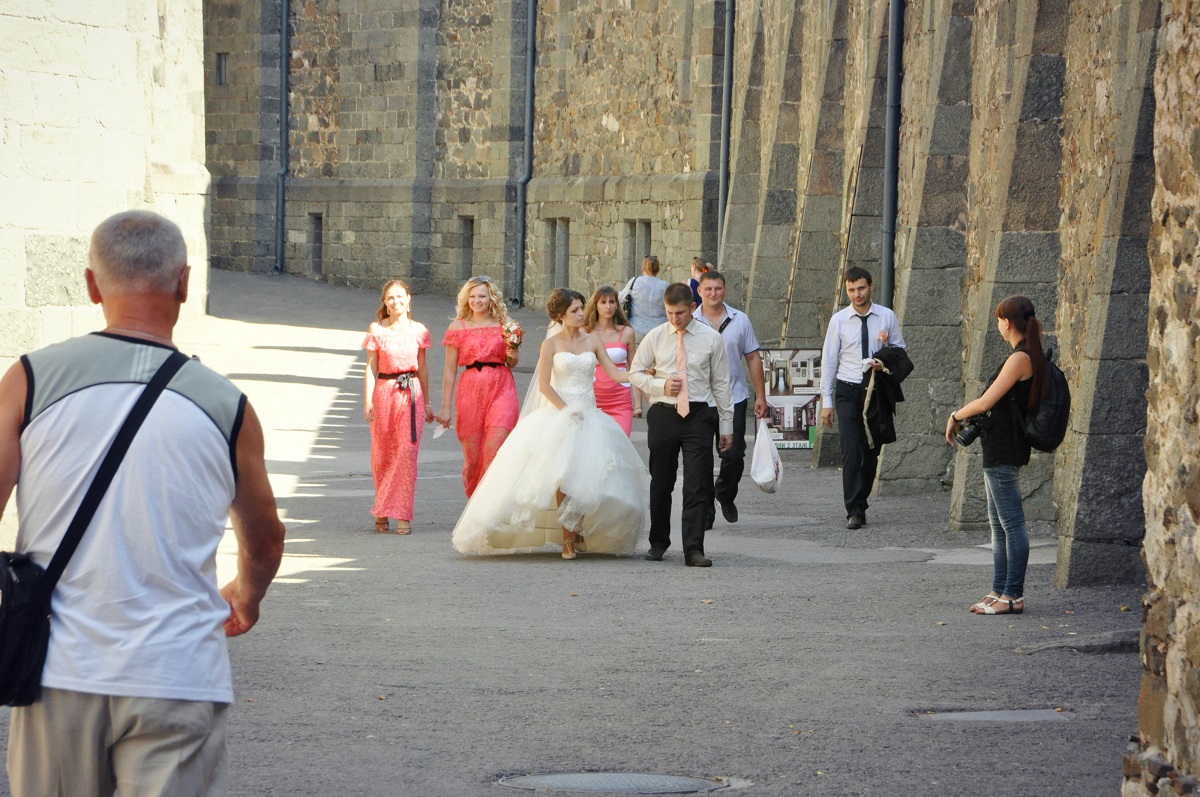
In this photo, I did not know that that she smiled in my photo, the color and light of the photo is not enough but full of peace.
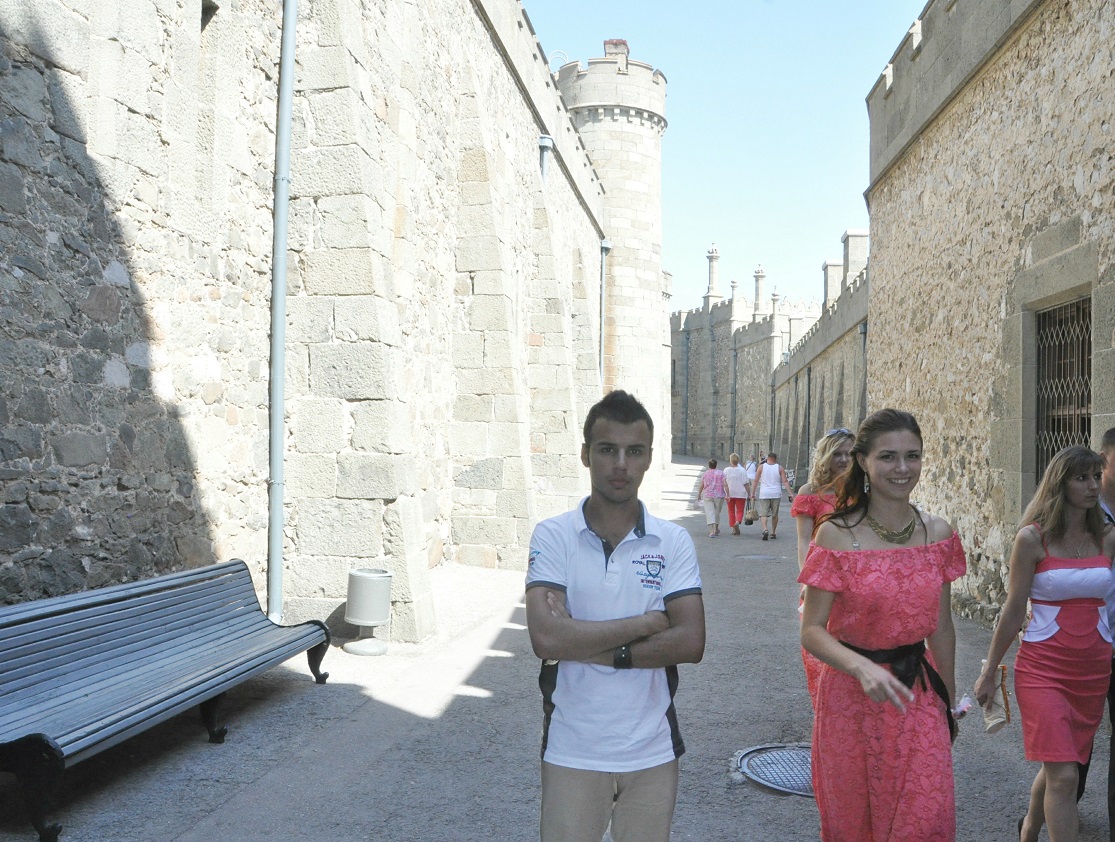
Prince Semyon Vorontsov (23 October 1823 – 6 May 1882), the only son and heir of Prince Mikhail. He served under his father in the Caucasus with distinction and figures in Leo Tolstoy's novella Hadji Murat, as do his wife and father. On 26 August 1851 he married in Alupka, against his parents' wishes, Madame Stolypina, née Princess Trubetskaya, once famed for her radiant beauty. The couple found the cost of running the palace too high, and after making various economies they seldom visited the Crimea. After Semyon's death without issue, the widow plundered the palace of many of its entailed furnishings and paintings and settled at the Avenue du Bois de Boulogne with the Duca di Montelfi, her son from a previous marriage.
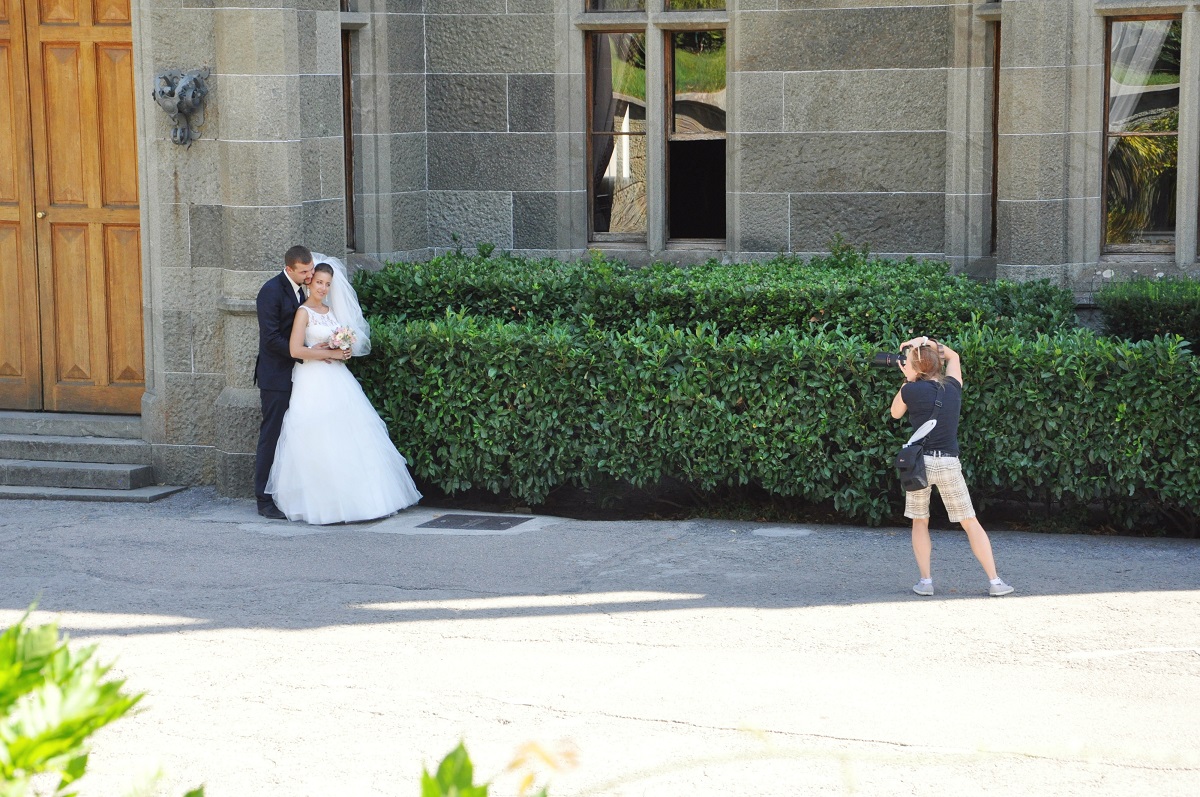
Countess Sofia Shuvalova (1825–15 August 1879), the daughter of Prince Mikhail and Princess Elizaveta. In 1844, she married Count Andrei Shuvalov, the owner of Pargolovo (not to be confused with another branch of the Shuvalov family whose family seat was the Schloss Ruhenthal in Courland). The marriage was not happy, inducing her to live separately from her husband, who died in the house of another woman in 1876. From the 1850s Sofia and her children used Alupka as a country retreat, occupying the long West Wing now named after them, the Shuvalov Wing, while her brother Prince Semyon occupied the remainder of the palace.
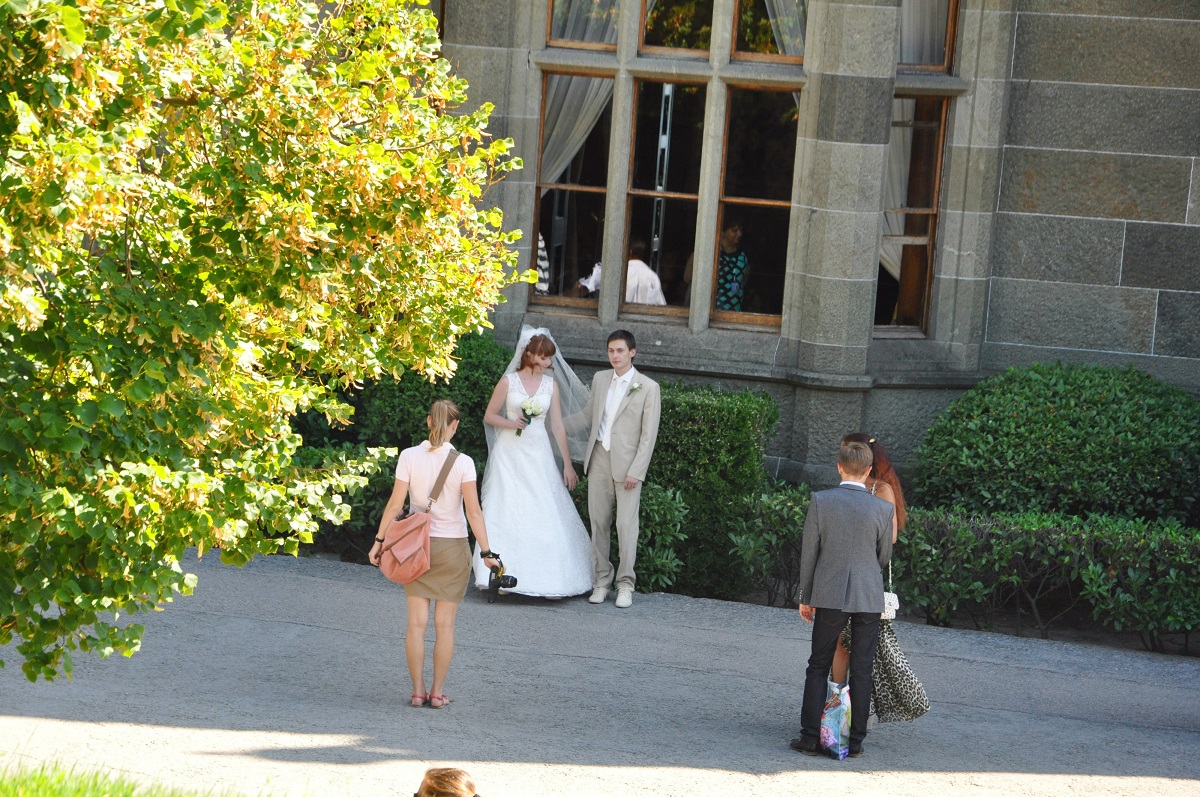
"Once we'd arrived at this conclusion, Misha invited me to the cinema! I don't remember what we went to see, but I remember the cinema was on Pirogovka, near Sportivnaya \[metro station\]. It's not far from Novo-Devichii monastery. The film was definitely a new comedy. And another time we watched Tarkovsky's Andrei Rublev together. This all happened in the spring of 1973. In all, we worked together for three years. In the end, he came to realise that I wasn't only good at differential equations! Once he'd come to terms with that, we got married and went to Alupka, in the Crimea, where his father had been born.
Actually, it was the other way round. We had our honeymoon first, and then we registered our marriage! The trip to Alupka was great. It was very beautiful there. We walked in Vorontsov Park; we visited Alupka palace. The sun was burning hot, so we walked in the shade; I didn't feel well in the sun. Misha had spent a lot of time in Alupka as a child, visiting his grandfather, but he didn't have any relatives left there by the time we visited. At the time we got married, Komsomol weddings were in fashion.
My parents got married before the war and at that time weddings were considered rather petty-bourgeois. I also had a feeling that marriage was petty-bourgeois, so we didn't have a big wedding. When we registered our marriage at ZAGS, the only people there were my parents, his parents and two witnesses. It was all very simple, with no special dress. We didn't even go to a restaurant afterwards. What restaurant? My mother cooked for us; she was a very good cook. Later, when guests came to our house to celebrate Misha's birthday, we told them we'd got married that same day. That was our present to our guests!"
from "Life Stories Of Soviet Women: The Interwar Generation" Written by Melanie Ilič (Page 131)
Share this post
Help others discover this content
Load Comments